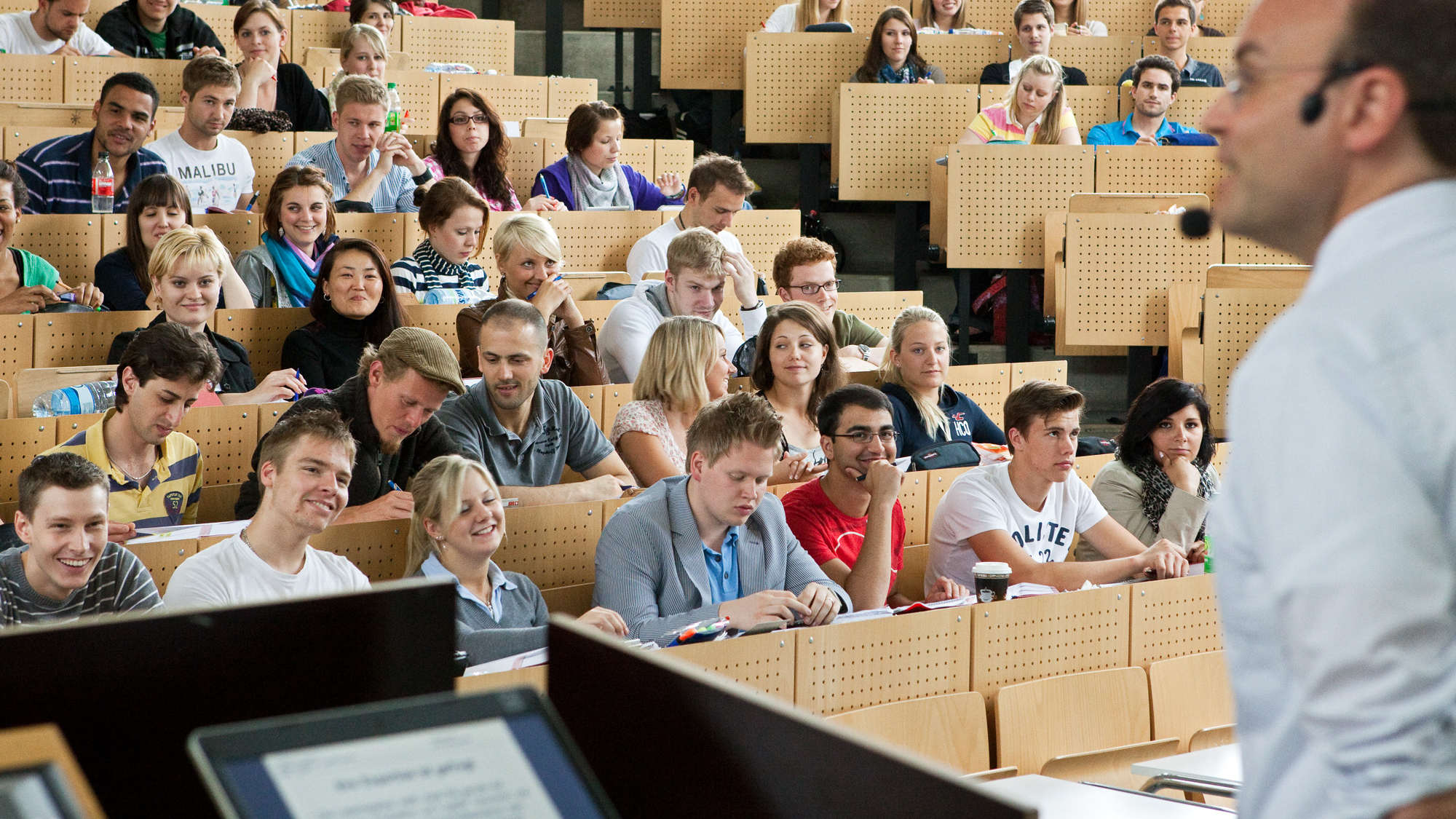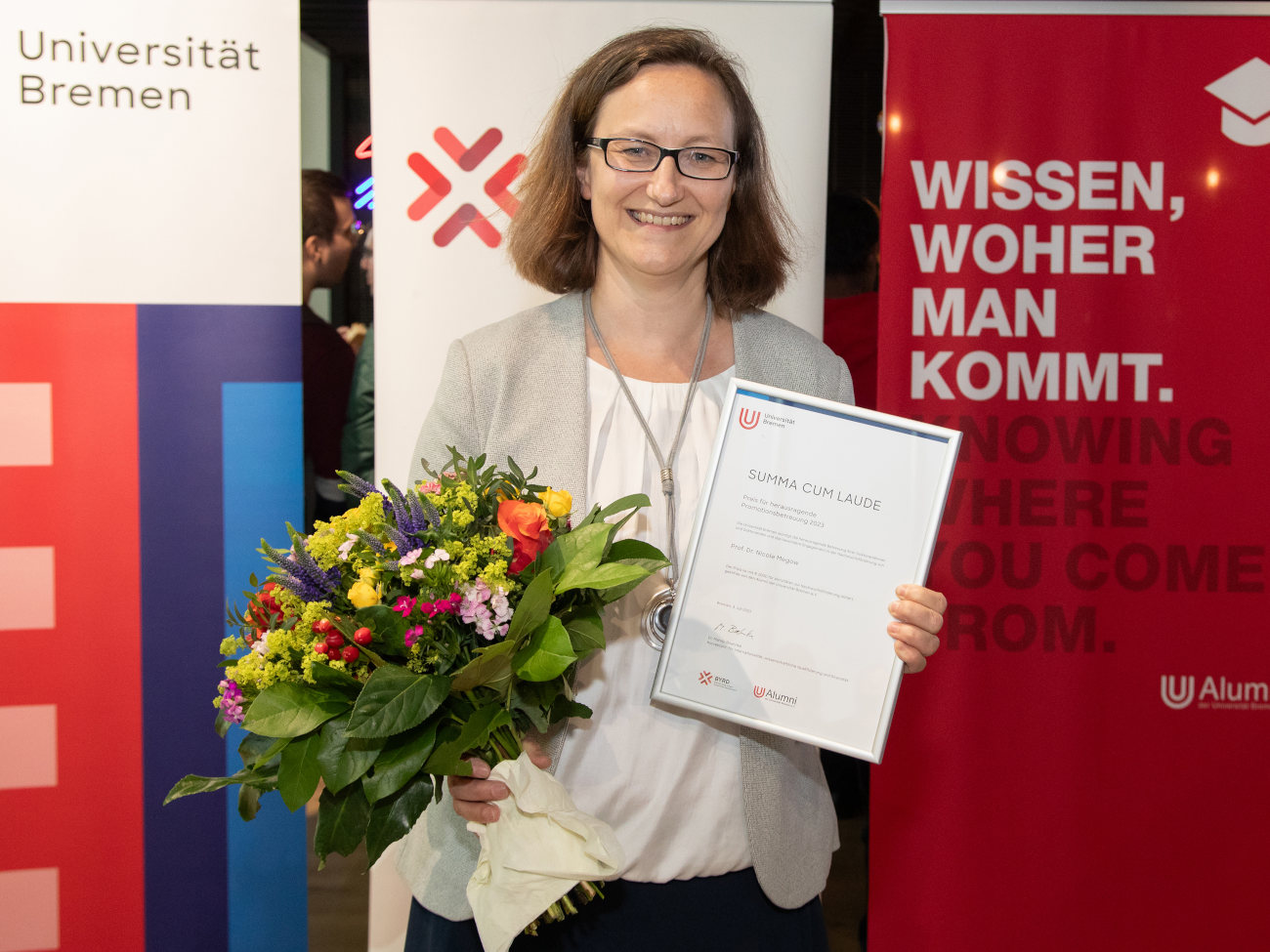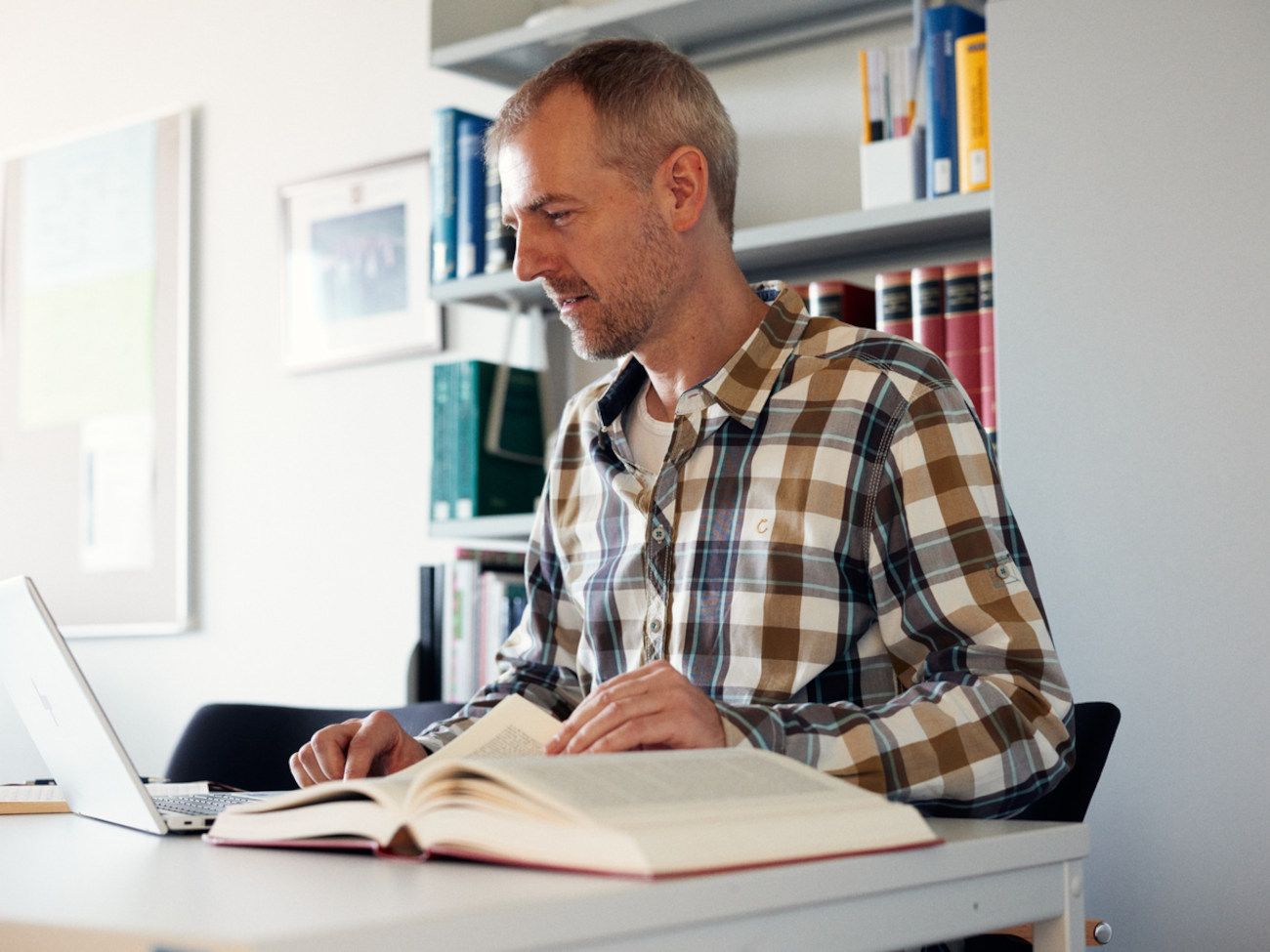
© Universität Bremen
Every Professor Was Once a First-Year Student
Researchers reflect on their time as students
Your first semester is approaching and you still have many questions? You are in good company; many fellow students feel the same way. Uncertainty is quite common when beginning a degree. Even your professors were once first-year students and may have had similar experiences as you. We spoke with two of them about their time as students.
Nicole Megow, Professor of Combinatorial Optimization and Logistics

© Jens Lehmkühler / Universität Bremen
What did you study and why?
I studied business mathematics at Technische Universität Berlin from 1996 to 2002 and spent a year during this time at the Massachusetts Institute of Technology (MIT) in the USA. I particularly liked the clarity and elegance of mathematics: that you can prove statements and there is a clear distinction between “right” and “wrong.” I was especially fascinated by questions relating to combinatorial optimization and graph theory. In addition to mathematics, I also studied computer science and business administration. The combination seemed like a good choice at the time, because it would provide more career opportunities for the time after graduation. Today, I am researching at the interface of mathematics and computer science.
What are your favorite memories from your time as a student?
In general, I have a positive memory of being a student – lots of freedom and creative leeway, of course combined with a certain amount of pressure to perform on exams. But I also look back on many special experiences. For example, I worked as a student assistant at the International Congress of Mathematicians (ICM 1998), where the Fields Medal, the highest award in mathematics, is also awarded. I was even allowed to present this directly on stage, which was a great highlight. In addition, I was able to gain a lot of intercultural experience as a student – during my stay at MIT, but also during an internship in India, where I taught programming languages to teachers.
If you could study again today, which subject would you choose?
As an undergraduate degree, I would choose mathematics again. But I also have many other interests. For example, I began studying Southeast Asian Studies during my PhD. I strongly recommend taking the time to pursue studies in other subjects in addition to your degree courses and find out what inspires you.
What suggestions would you like to offer new students?
Pursuing a degree is different from school in many ways. You have more freedom, but also more responsibilities. You have to make many decisions, from choosing your degree program to selecting individual courses. There are many people at the university who can help you make these decisions, but the initiative must come from you. This applies not only to structuring your degree, but also to the courses themselves. Be active, get involved, and ask if anything is unclear to you.
Norman Sieroka, Professor of Theoretical Philosophy

© Patrick Pollmeier / Universität Bremen
What did you study and why?
I studied physics, philosophy, and mathematics in Heidelberg and Cambridge from 1995 to 2002. The fact that I was interested in philosophy was due to the classical language instruction during my school days. What I learned there about antiquity and philosophy fascinated me. The part of physics which captivated me most was astronomy. As a teenager, I had a telescope that I liked to use to observe planets and galaxies. Interestingly, however, neither ancient philosophy nor astronomy were among my specializations. I saw mathematics as a good connection between the other two subjects. Much of physics is based on mathematical foundations, but in terms of its methodology, it belongs more to the humanities.
What are your favorite memories from your time as a student?
It was exciting to see how different the approaches to philosophical topics were in Heidelberg and Cambridge. The philosophical thought traditions at the two universities sometimes differed significantly from each other. Cambridge often hosted prominent researchers from all over the Anglo-American region. I was able to get to know some of them personally after their presentations over a drink in the college bar. A particularly wonderful and important event for me was that our first child was born while I was a student.
If you could study again today, which subject would you choose?
What I really like about my work as a philosopher is the many insights I get into other areas of science. I work a lot with researchers from natural and engineering sciences, but also, for example, with those from architecture and theology. Within the natural sciences, I find the methodological approaches in pharmacy interesting, because they are sometimes very different from those in physics. And theology interests me because it unites so many different areas, from history to philology to philosophy. Nevertheless, I would study philosophy again today.
What suggestions would you like to offer new students?
From my point of view, the most important thing is to do what really interests you and not lose sight of that. One should not forget that being a student is a full-time job that is not done in ten or twenty hours a week. This makes it all the more important to follow your passion – and, if your chosen degree does not fit with this, to think of alternatives.